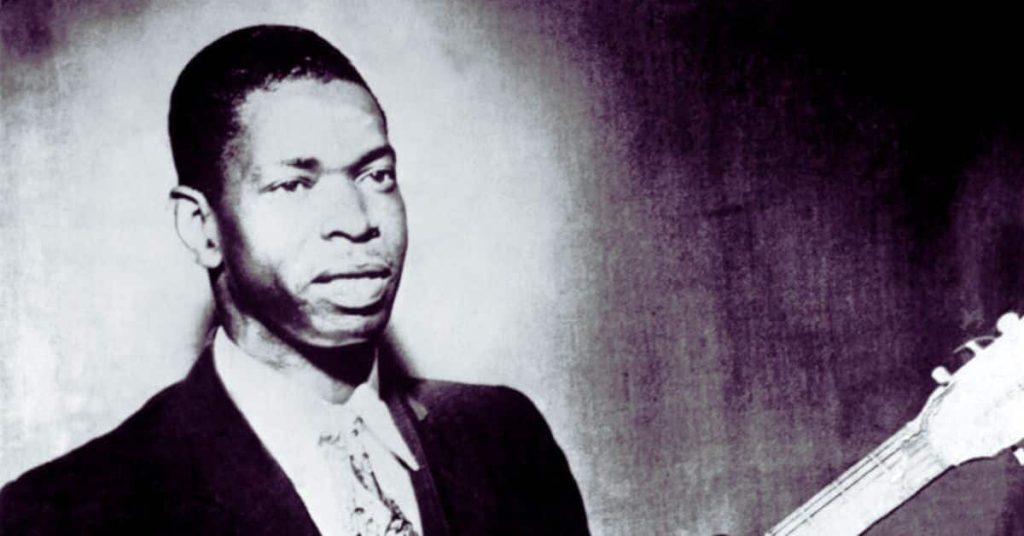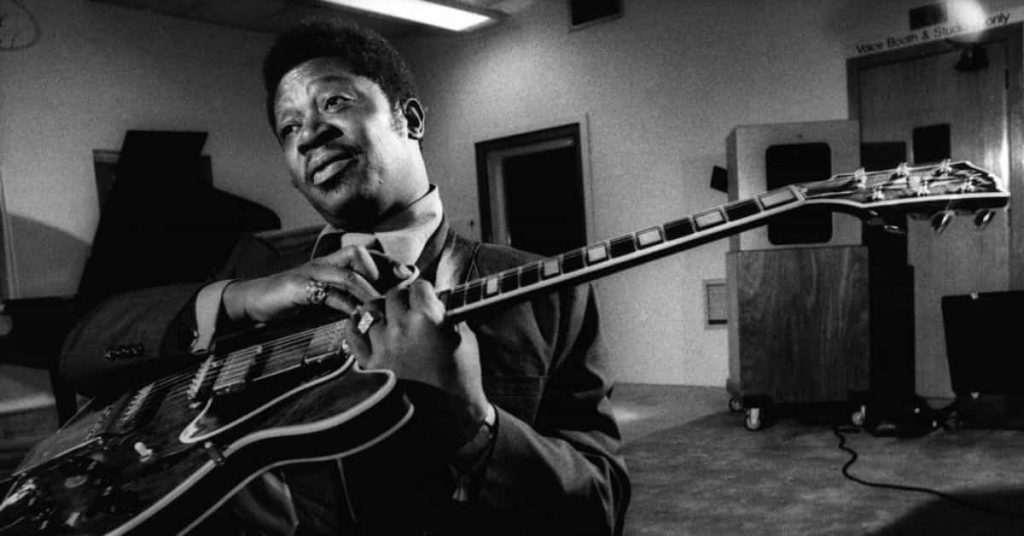Dust My Broom – Elmore James
The blues, born from the fertile soil of the Mississippi Delta, has endured the test of time as one of the most influential genres in music history. Elmore James stands as a true legend among the luminaries who have left an indelible mark on the blues landscape. His electrifying slide guitar prowess and raw vocal intensity helped define the Delta blues sound. One of his most iconic tracks, “Dust My Broom,” continues to captivate listeners even decades after its release.
The Birth of a Blues Icon
Elmore James, born Elmore Brooks in 1918 in Richland, Mississippi, experienced the hardships and emotional struggles that often became the lyrical essence of the Delta blues. His journey from a sharecropper’s life to a renowned blues artist reflects the quintessential blues narrative. Elmore’s early fascination with music and the slide guitar set the stage for his remarkable career. “Dust My Broom” was first recorded by James in 1951 for the Trumpet Records label, with a tempo that mimicked the fast pace of life in the Delta. The song’s distinctive opening riff, a driving force behind its appeal, was played on a modified Kay acoustic guitar fitted with a single pickup. This arrangement created a sound that was both piercing and haunting, immediately recognizable as the signature Elmore James style.
The Allure of the Slide Guitar
One of the defining elements of “Dust My Broom” is Elmore James’s mastery of the slide guitar. This technique involves sliding a smooth object, typically a glass or metal tube along the strings of a guitar to produce a distinct, soulful sound. James’s slide guitar work on this track is nothing short of mesmerizing. The slide guitar’s mournful wail perfectly complements the song’s lyrics, which speak of heartbreak and abandonment. It’s as if the instrument itself is weeping, echoing the deep emotions conveyed in James’s vocal delivery. The haunting, sliding notes draw the listener into the melancholic world of the Delta blues, where every bend and slide tells a story of hardship and longing.
The Lyrical Depth
“Dust My Broom” is a master class in blues songwriting. The lyrics are steeped in the tradition of storytelling, a hallmark of the blues genre. The song’s protagonist, weary and heartbroken, sings of a lover who has left him, prompting him to “get up in the mornin’, baby, and I can’t be satisfied.” This refrain of dissatisfaction and longing resonates deeply with anyone who has experienced the pain of unrequited love.
The imagery in the lyrics vividly paints a picture of a man at the crossroads of despair and determination. He’s “gonna get up in the mornin’ / I believe I’ll dust my broom.” The broom symbolizes renewal and a fresh start, a theme common in the blues, where adversity often leads to resilience.
Covering the Classics
A testament to the song’s enduring appeal is the multitude of covers it has inspired. From blues stalwarts like Robert Johnson and Muddy Waters to rock icons like the Rolling Stones, “Dust My Broom” has been reinterpreted in a variety of styles, each artist adding their own unique flavor to the timeless classic. These covers not only pay homage to Elmore James but also serve as a testament to the song’s adaptability. It can seamlessly fit into different musical contexts, from traditional blues to electrified rock, while retaining its emotional core.
The Evolution of Sound
The evolution of “Dust My Broom” over the years reflects the changing landscape of music production and technology. The original 1951 recording, with its raw energy and simplicity, has a timeless quality that continues to resonate with listeners. Subsequent renditions and remix of the song have introduced new elements while preserving the essence of the original. Advances in recording techniques and equipment have allowed for greater clarity and depth in the instrumentation, enhancing the listening experience without compromising the song’s authenticity.
“Dust My Broom” in Popular Culture
Beyond its influence on musicians, “Dust My Broom” has left an indelible mark on popular culture. The song has been featured in numerous films, television shows, and commercials, further cementing its status as a classic. Its appearance in various forms of media has introduced the song to new generations of listeners, thereby ensuring its longevity.
The Emotional Resonance
What makes “Dust My Broom” endure is its emotional resonance. The song taps into universal feelings of heartache and longing. Whether you’re a seasoned blues enthusiast or someone discovering the genre for the first time, the song’s raw power and relatable themes make it an enduring favorite. As Elmore James sings, “I’m gonna call up China, see if my baby’s over there.” It’s a sentiment that transcends time and place, reminding us that love and loss are universal experiences.
Keeping the Blues Alive
In an era of ever-changing musical trends, the blues remains a steadfast genre due to its enduring appeal. “Dust My Broom” serves as a torchbearer for the blues, keeping its spirit alive and well in the hearts of music lovers worldwide. As we celebrate the song’s legacy, we also honor the rich tradition of the blues and its ability to connect people across generations and cultures. The blues is not just a genre; it’s a living, breathing testament to the human experience.
“Dust My Broom” by Elmore James is more than just a song; it’s a cultural touchstone, a musical journey through the heart and soul of the Delta blues. Elmore’s haunting slide guitar, coupled with his poignant lyrics, creates a sonic landscape that continues to resonate with audiences of all ages. Its influence on generations of musicians and its enduring popularity in popular culture speak to the timeless power of the blues.
As we dust off our brooms and revisit this classic, we are reminded of the enduring emotional depth and universal themes that make the blues a genre like no other. “Dust My Broom” stands as a shining example of how music can capture the essence of the human experience and transport us to the heart of the Delta, where the blues will forever be alive and well.






